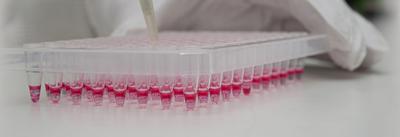Manipulating modulation in the fight against cancer

Research into cancer therapeutics has recently taken another step forward with further elucidation of how a certain class of drugs work and the mechanisms which limit their efficacy.
Monoclonal antibody (mAb) drugs such as rituximab are successfully used to treat many Blood cancers such as non-Hodgkin’s lymphomas. These drugs kill by binding to cancer cells and singling them out for destruction by the immune system. However, it has previously been demonstrated that some cancer cells are able to internalise or “modulate” mAb such as rituximab from their exterior, effectively making the cells invisible to the immune system.
The current work funded by Leukaemia and Lymphoma research and led by Dr Stephen Beers and Professor Mark Cragg found that the modulation of rituximab by cancer cells allows them to avoid detection and killing by two key types of immune cell; macrophages and Natural Killer cells. They went on to show that in model systems, it is predominantly macrophages that are responsible for killing the cancer cells coated with mAb.
The group based at Southampton General Hospital is now looking to move this research forward further. Firstly, they are investigating how to block this modulation of mAb by cancer cells. This work is focussed on blocking another receptor on the cancer cell surface which in the absence of this blockade acts to speed up the internalisation process. Secondly, they are researching methods to enhance the killing ability of macrophages. In the future it may be possible to prime macrophages with certain drugs so that they are better able to kill cancer cells when mAb are given.
Tom Tipton the Gordon Pillar student who performed the majority of this work as part of his PhD is quoted as saying, “This research has added to a large body of work which has identified macrophages as a very important immune cell in the fight against cancer. If we can overcome the detrimental effects of antibody modulation by cancer cells we will greatly improve the efficacy of monoclonal antibodies such as rituximab.”